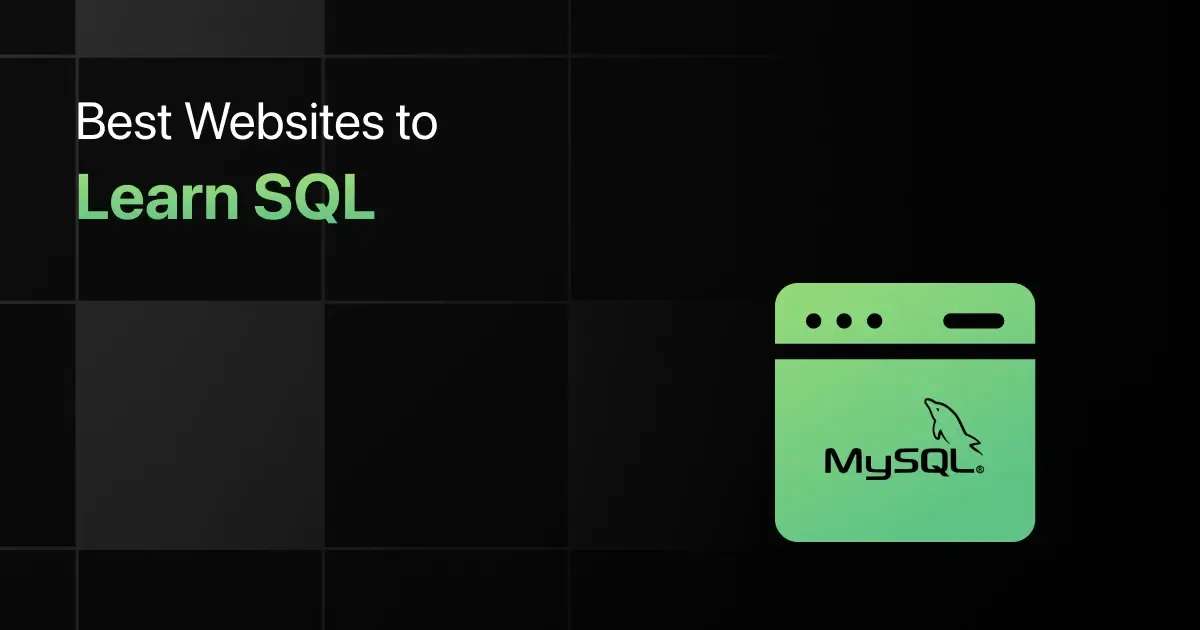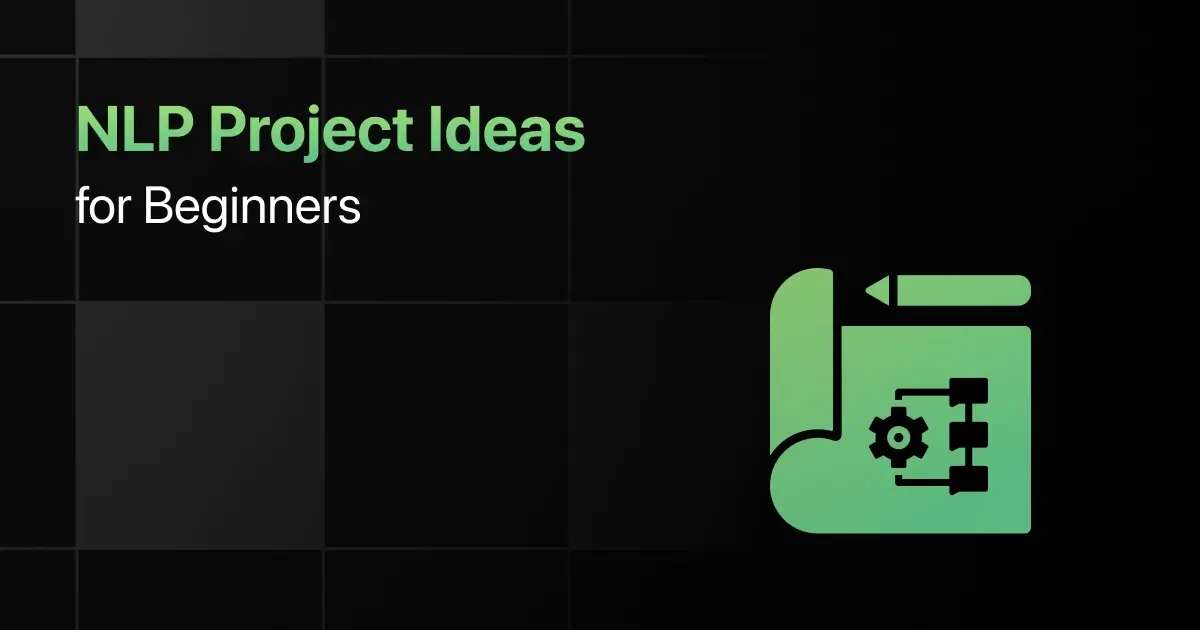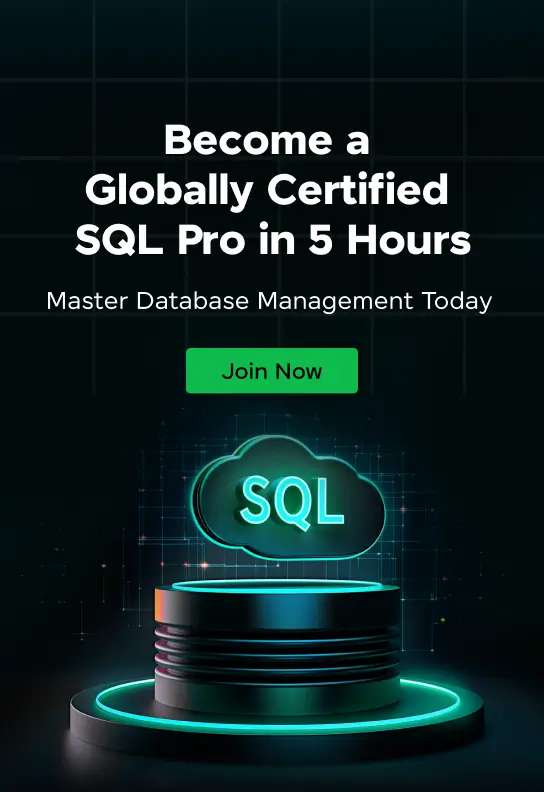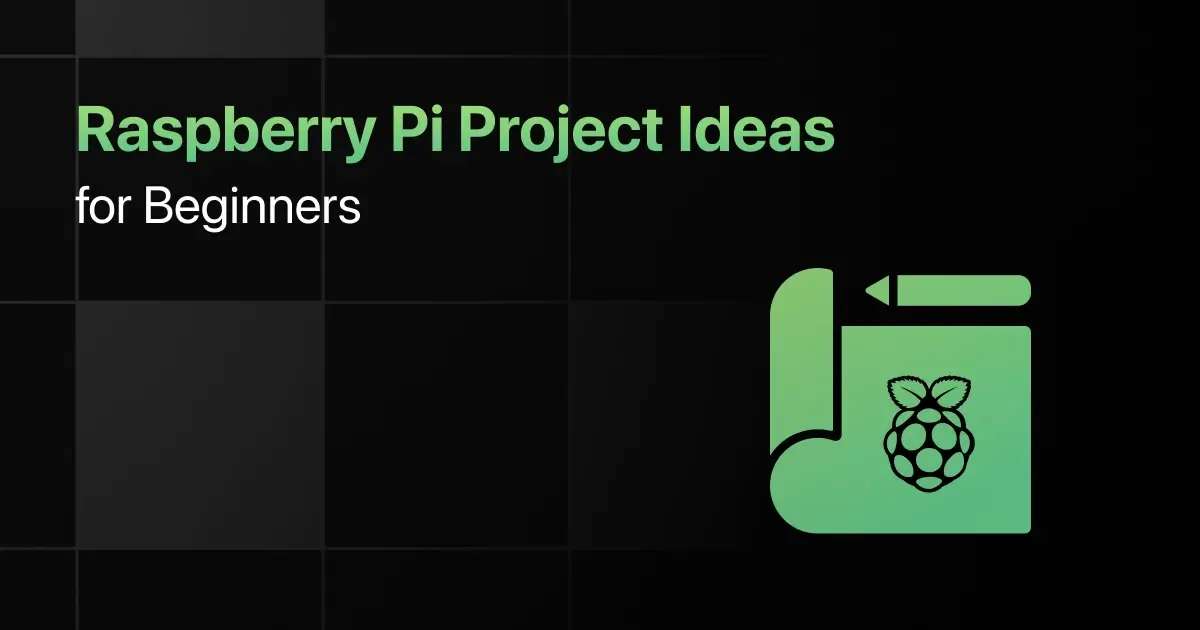Best Websites to Learn SQL Programming

Ever wondered how to manage and query databases like a pro without spending a dime?
Dive into the world of database management with the best websites to learn SQL for free, offering you the tools and knowledge to master this essential database language without any cost.
10 Best Websites for SQL – Overview
Here’s an overview of the top 10 websites to learn SQL:
| S.No. | Website Name | Course Duration | Pricing | Certification | Website Link |
|---|---|---|---|---|---|
| 1 | GUVI | 4 hours | Paid | Yes | Visit Now |
| 2 | SQLBolt | Self-paced | Free | No | Visit Now |
| 3 | Udemy | 9 hours | Paid | Yes | Visit Now |
| 4 | Khan Academy | Self-paced | Free | No | Visit Now |
| 5 | Codecademy | 5 hours | Paid | Yes | Visit Now |
| 6 | Coursera | 20 hours | Freemium | Yes | Visit Now |
| 7 | SQLZoo | Self-paced | Free | No | Visit Now |
| 8 | DataCamp | 26 hours | Paid | Yes | Visit Now |
| 9 | Udacity | Self-paced | Paid | Yes | Visit Now |
| 10 | FreeCodeCamp | 4 hours | Free | No | Visit Now |
Best Websites to Learn SQL for Beginners
Below is the list of best websites to learn SQL for beginners:
1. GUVI
GUVI’s MySQL course is designed to provide learners with a deep understanding of one of the most widely used databases in the tech world.
Throughout the course, learners will explore important concepts such as DBMS & RDBMS, DDL, DML, DCL, and TCL, databases and tables, insert and select operations, order by and group by clauses, joins, string and date operations, auto increment, triggers, index views, and transaction control with commit & rollback.
The course is self-paced and includes 4 hours of recorded content, and upon completion, learners will receive a globally-recognized certificate.
Course Diversity: Covers comprehensive MySQL database management concepts.
Learning Style: Self-paced online learning with real-time projects.
Pricing Structure: Course available at Rs. 999.
Platform Usability: User-friendly interface with easy access to course materials.
Certifications Offered: Globally recognized certification upon completion.
Language Options: Course available in English.
Instructor Expertise: Guidance from top industry experts.
Duration of Courses: 4 hours of recorded content.
Community and Support: Dedicated forum support for doubt clearance.
2. SQLBolt
SQLBolt is an interactive online platform dedicated to teaching SQL (Structured Query Language) through a series of lessons and exercises.
It is designed to help both technical and non-technical users quickly learn SQL in an engaging and practical manner, directly in their browser. The site covers the essentials of querying, manipulating, and transforming data from a relational database. SQLBolt’s tutorials are structured to provide a foundational understanding of relational databases and SQL syntax.
The lessons start with basic concepts and gradually introduce more complex queries and operations. Each lesson concludes with interactive exercises, allowing learners to apply what they’ve learned in real-time.
Course Diversity: Covers SQL basics to advanced queries and operations.
Learning Style: Interactive lessons with practical exercises.
Pricing Structure: Free access to all tutorial content.
Platform Usability: User-friendly and easy to navigate.
Certifications Offered: Does not specify certifications for this tutorial.
Language Options: Content primarily in English.
Instructor Expertise: Content developed by SQL experts.
Duration of Courses: Self-paced, time varies depending on the learner’s schedule.
Community and Support: Does not specify community or support options.
3. Udemy
“The Complete SQL Bootcamp: Go from Zero to Hero” on Udemy is a best-selling course designed to turn beginners into proficient SQL users. Created by Jose Portilla, this course focuses on PostgreSQL, one of the most popular SQL databases.
The course covers a wide range of topics, including querying a database, performing data analysis, and understanding GROUP BY statements. It is structured to be beginner-friendly, requiring no prior technical experience, and includes 9 hours of on-demand video, 16 articles, and 16 downloadable resources.
The course’s practical approach, with challenges and tests along the way, ensures a deep understanding of SQL.
Course Diversity: Covers querying, data analysis, and advanced SQL operations.
Learning Style: Video-based learning with practical challenges and tests.
Pricing Structure: Individually priced, with frequent discounts.
Platform Usability: User-friendly interface with easy access to course materials.
Certifications Offered: Certificate of completion provided.
Language Options: Content available in English, with subtitles in multiple languages.
Instructor Expertise: Course created by Jose Portilla, Head of Data Science at Pierian Training.
Duration of Courses: 9 hours of on-demand video content.
Community and Support: Udemy platform offers Q&A sections and community forums.
4. Khan Academy
Khan Academy’s SQL programming section is part of their broader computer programming curriculum, offering an interactive way to learn SQL, the language used for managing data in relational databases.
This section, titled “Intro to SQL: Querying and managing data,” is designed for learners of all levels and focuses on teaching how to use SQL to store, query, and manipulate data. The tutorials begin with the basics of creating tables and selecting data and progress to more advanced SQL queries using operators like AND/OR, IN, LIKE, and HAVING. The section also covers relational queries in SQL, teaching how to store related data in multiple tables and use joins to bring them together.
Course Diversity: Covers SQL basics, advanced queries, and relational database management.
Learning Style: Interactive lessons with practical exercises.
Pricing Structure: Completely free.
Platform Usability: User-friendly and easy to navigate.
Certifications Offered: Does not specify certifications for this section.
Language Options: Content primarily in English.
Instructor Expertise: Content developed by Khan Academy’s experienced educators.
Duration of Courses: Self-paced, time varies depending on the learner’s schedule.
Community and Support: Does not specify community or support options.
5. Codecademy
Codecademy’s “Learn SQL” course is designed to teach the fundamentals of managing large datasets and analyzing real data using SQL, the standard data management language.
This course requires no prerequisites, making it accessible to anyone interested in data science, analytics, or engineering. The course covers essential SQL skills such as working with databases, creating queries for tables, and building SQL projects. It includes a syllabus of four lessons, five projects, and four quizzes, totaling approximately 5 hours of content.
The course is included with Codecademy’s paid plans, which also provide a certificate of completion. The platform’s AI-assisted learning tools and mobile IDE enhance the learning experience.
Course Diversity: Covers SQL basics, including database management and data analysis.
Learning Style: Interactive, hands-on learning with projects and quizzes.
Pricing Structure: Included with Codecademy’s paid plans.
Platform Usability: User-friendly, with AI-assisted learning and a mobile IDE.
Certifications Offered: Certificate of completion included with paid plans.
Language Options: Course content primarily in English.
Instructor Expertise: Developed by experienced data professionals.
Duration of Courses: Approximately 5 hours to complete.
Community and Support: Access to Codecademy’s community and learning resources.
6. Coursera
The “Databases and SQL for Data Science with Python” course on Coursera, offered by IBM, is designed to equip data professionals like Data Scientists, Data Analysts, and Data Engineers with a working knowledge of SQL.
The course covers foundational SQL statements like SELECT, INSERT, UPDATE, and DELETE, and teaches how to filter result sets, use various clauses, and differentiate between Data Manipulation Language (DML) and Data Definition Language (DDL). It also includes advanced SQL techniques like views, transactions, stored procedures, and joins.
The course is structured to provide hands-on experience with real databases on the Cloud and uses data science tools like Jupyter notebooks with SQL and Python.
Course Diversity: Covers foundational to advanced SQL techniques and applications in data science.
Learning Style: Hands-on learning with real databases and data science tools.
Pricing Structure: Accessible through Coursera subscription, financial aid available.
Platform Usability: User-friendly platform with courses structured for easy navigation and progress tracking.
Certifications Offered: Shareable certificate available upon completion.
Language Options: Content available in English with subtitles in 20 languages.
Instructor Expertise: Courses taught by experienced instructors from IBM.
Duration of Courses: Approximately 20 hours, self-paced learning.
Community and Support: Access to Coursera’s community of learners and developers.
7. SQLZoo
SQLZoo is an interactive online learning platform dedicated to teaching SQL through a series of step-by-step tutorials and exercises.
The tutorials cover a wide range of SQL topics, starting with basic SELECT statements and progressing to more complex queries involving JOIN operations, aggregate functions, and subqueries.
The site also includes tutorials on specific SQL features like working with NULL values, window functions, and numeric examples. Each tutorial is accompanied by interactive exercises, allowing learners to practice SQL queries directly on the website.
Course Diversity: Covers a wide range of SQL topics, from basic queries to advanced operations.
Learning Style: Interactive tutorials with hands-on exercises.
Pricing Structure: Free access to all tutorial content.
Platform Usability: User-friendly and easy to navigate.
Certifications Offered: Does not specify certifications for this tutorial.
Language Options: Content available in English, with some tutorials in other languages.
Instructor Expertise: Content developed by SQL experts.
Duration of Courses: Self-paced, time varies depending on the learner’s schedule.
Community and Support: Does not specify community or support options.
8. DataCamp
DataCamp’s “SQL Fundamentals” track is a curated learning path designed to teach the essential skills of SQL.
It includes seven courses and one project, totaling approximately 26 hours of content. The track covers SQL basics, such as structuring and querying relational databases, and progresses to more advanced topics like summarizing and joining tables, using window functions, and built-in PostgreSQL functions for data analysis.
Hands-on exercises are a key component, allowing learners to apply their knowledge to real-world scenarios.
Course Diversity: Covers SQL basics to advanced data analysis techniques.
Learning Style: Hands-on exercises and real-world projects.
Pricing Structure: Accessible through DataCamp subscription.
Platform Usability: User-friendly platform with structured learning paths.
Certifications Offered: Statement of Accomplishment upon track completion.
Language Options: Content available in English.
Instructor Expertise: Courses taught by experienced data professionals.
Duration of Courses: Approximately 26 hours across seven courses and one project.
Community and Support: Access to DataCamp’s community and support resources.
9. Udacity
Udacity’s “SQL for Data Analysis” course is designed to equip learners with the skills needed to use SQL for data analysis effectively.
This course is part of their School of Data Science and is suitable for beginners with no prior experience in SQL. It covers a range of topics, including basic SQL commands for filtering and sorting data, advanced SQL techniques like joins and subqueries, data cleaning and preparation using SQL, and how to use SQL functions for data aggregation and manipulation.
Course Diversity: Covers basic to advanced SQL techniques for data analysis.
Learning Style: Interactive exercises and real-world projects.
Pricing Structure: Accessible through Udacity’s subscription model.
Platform Usability: User-friendly platform with structured learning paths.
Certifications Offered: Certificate of completion available.
Language Options: Content available in English.
Instructor Expertise: Courses taught by experienced data professionals.
Duration of Courses: Self-paced learning, duration varies based on individual progress.
Community and Support: Access to Udacity’s community and mentor support.
10. freeCodeCamp
freeCodeCamp’s “SQL and Databases – A Full Course for Beginners,” taught by Mike Dane, is an extensive course designed to introduce learners to the fundamentals of database management and SQL.
It begins with guidance on installing MySQL on Windows or Mac and then delves into essential topics like schema design, CRUD (Create-Read-Update-Delete) operations, and other database fundamentals. The course covers a wide range of SQL topics, including basic queries, functions, wildcards, unions, joins, nested queries, triggers, and ER diagrams.
With a total duration of 4 hours, the course is available ad-free on YouTube and is structured to provide a solid foundation in SQL.
Course Diversity: Covers database management basics and a wide range of SQL topics.
Learning Style: Video-based learning with practical examples.
Pricing Structure: Completely free.
Platform Usability: Accessible on YouTube, easy to follow along.
Certifications Offered: Does not specify certifications for this course.
Language Options: Content available in English.
Instructor Expertise: Course taught by Mike Dane, an experienced software developer.
Duration of Courses: 4-hour comprehensive course.
Community and Support: Access to freeCodeCamp’s community and learning resources.
Final Words
These websites are a goldmine for anyone aspiring to learn SQL, providing comprehensive tutorials and exercises. They make learning SQL practical, setting a solid foundation for your database management skills.
Keep checking this article as we will keep updating this space as more websites make space in the heart and study schedule of students preparing for placements and competitive exams.
Explore More SQL Resources
Explore More Websites
- Python
- Java
- Coding
- C++
- C Programming
- JavaScript
- Data Science
- HTML & CSS
- Web Development
- Data Structures and Algorithms
- AI & Machine Learning
- Ethical Hacking
- Android Development
- React JS
- Game Development
- Competitive Programming
- Digital Marketing
- Tableau
- DBMS
- R Programming
- PHP
- Cyber Security
- Excel
- Node JS
- Data Analytics
- Bootstrap
- Cloud Computing
- Operating System
- Angular
- RPA
FAQs
The best websites for learning SQL are:
- GUVI
- Udemy
- Khan Academy
- Codecademy
- Coursera
- SQLZoo
- freeCodeCamp
SQLBolt, Khan Academy and freeCodeCamp offer free SQL learning with certifications.
You should choose a website for learning SQL because they offer flexibility and have a variety of learning resources. They cater to different learning styles with interactive tutorials, video lectures, and hands-on exercises.
You can choose the right website for learning SQL by considering factors like course content quality, learning style compatibility (videos, interactive exercises), instructor expertise, community support, and pricing.
Yes, beginners can effectively learn SQL through websites. Many platforms offer beginner-friendly courses that start with basics and gradually progress to more complex topics.
Yes, some websites like Coursera and Udemy provide SQL learning content in multiple languages and subtitles.
Related Posts



Golang Interview Questions
Are you preparing for your first Golang interview and wondering what questions you might face? Understanding the key Golang interview questions …
Warning: Undefined variable $post_id in /var/www/wordpress/wp-content/themes/placementpreparation/template-parts/popup-zenlite.php on line 1050








